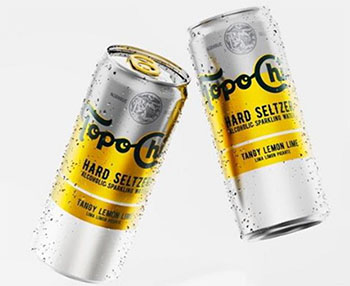
It’s lonely at the top of the mountain. Perhaps this explains why the Coca-Cola company has launched alcoholic Topochico, a spinoff of the popular Mexican sparkling water brand. After all, when their coalition of soda and alcohol companies successfully forced California legislature to ban all soda taxes, they defended their right to make money off damaging the pancreas of millions. Why not move on to the liver? Even better, why not move on to the livers of the Latinx community, a group who historically drinks at a lower rate than the U.S. average?
Alcoholic Topochico is already available in Mexico and Brazil, and is coming to the United States early next year. The product is manipulative and threatening in two ways:
As the namesake of a popular non-alcoholic Mexican product, it targets the Latinx community.
As a massive global company with abilities to forge policies in any country it chooses, alcoholic Topochico immediately makes Coca-Cola the new player among Big Alcohol.
The first is a major area of concern, especially among community advocates who have been following the exploitation of Latinx individuals by the alcohol industry. “Coke has continued to market Latinx culture and tradition,” said Mayra Jimenez, Advocacy Manager for the California Alcohol Policy Alliance, “profiting from increases in obesity and decreases in quality of life … The latest iteration of Topochico is a continuation of its policy of proliferating at all costs, even the lives of Latinos.”
Jimenez noted that the Mexican state of Oaxaca has already begun moving to ban the sale of Coca-Cola products to minors. This, combined with the fact that the Latinx and Hispanic population has historically drank less than the White population, suggests that Coca-Cola has motivation to try and get every penny it can from them. According to the Wall Street Journal, the Latinx population is young, growing, and in every alcohol company’s crosshairs.
And Coca-Cola has demonstrated the ability to not just choose a target, but shoot to kill. The company brought in nearly $32 billion, and is easily the largest soda company in the United States and the world, nearly doubling the market share of its nearest competitor. By entering the alcohol space, it is primed to use its economic and political clout to continue the destruction of global alcohol controls. Moreover, with truly globe-spanning brand recognition, it could give AB InBev a run for its money in breaking into new markets that currently consume little commercial alcohol.
To Jimenez, however, the harm is all part of the same pattern. “Coke has done nothing but profit from poverty while appropriating Latino culture, and it’s at it again.”
READ MORE about the how alcohol hurts racial and ethnic minority communities.
READ MORE about how Big Alcohol runs roughshod over low-income Mexican communities.
